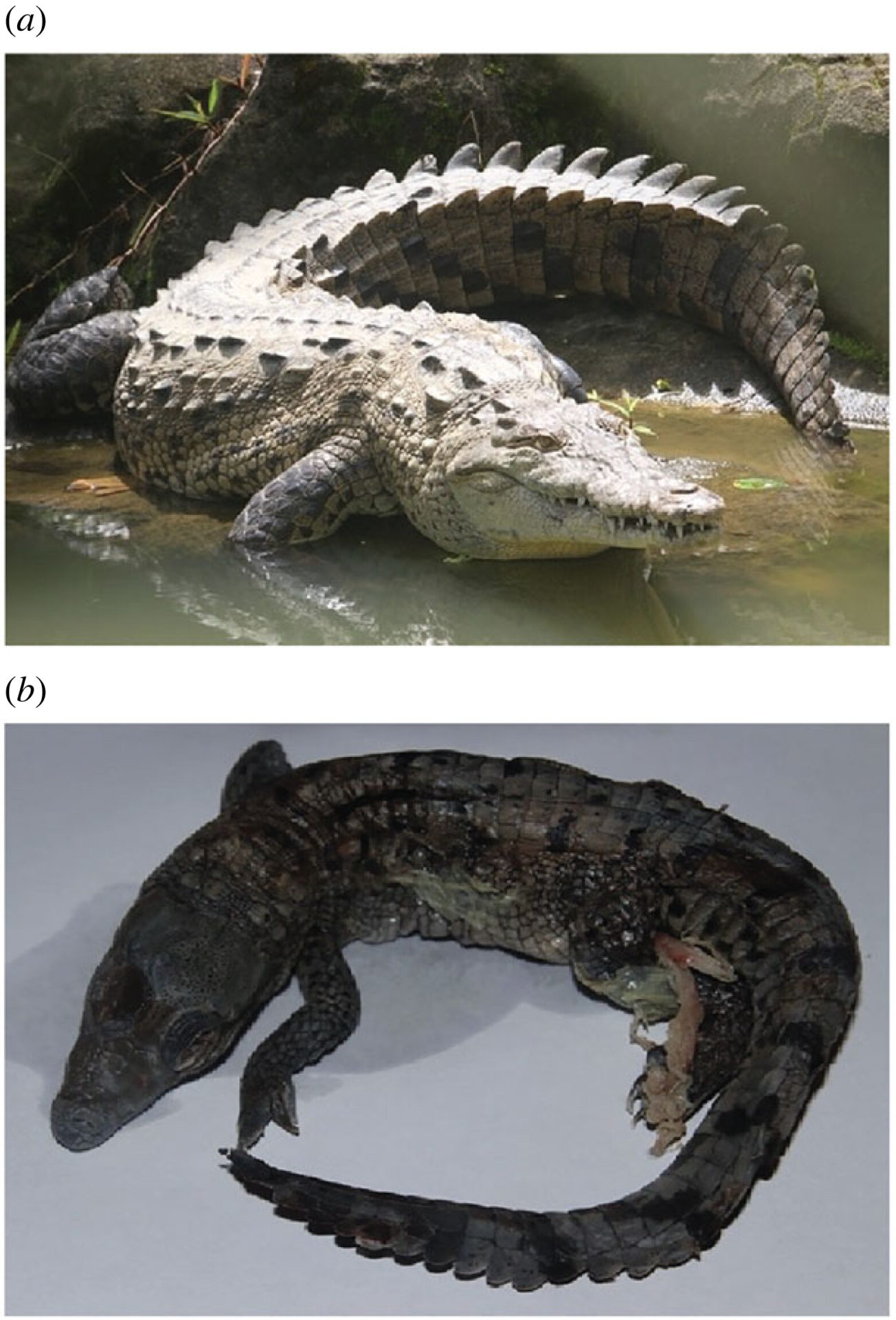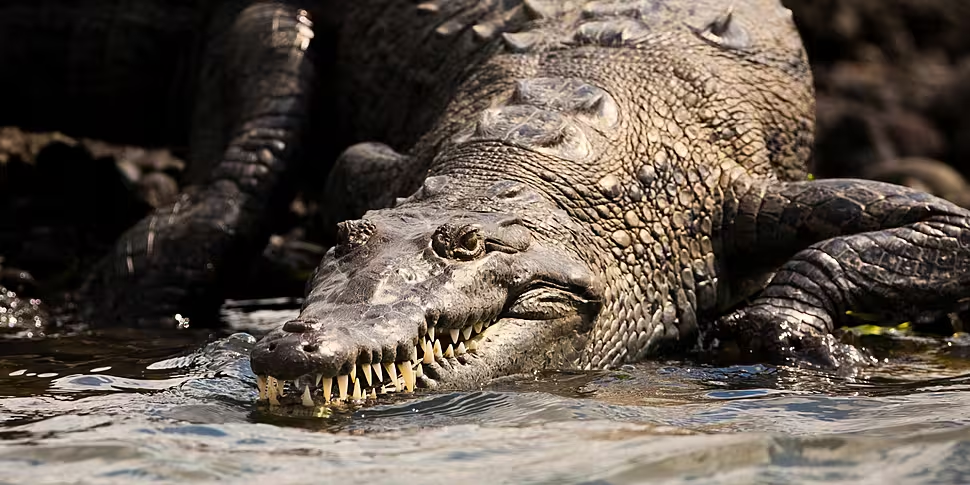Scientists have recorded the first known case of a 'virgin birth' in a female crocodile, who had no contact with males.
A study published on Wednesday said the American crocodile was taken into captivity in 2002 when she was two-years-old, and placed in an enclosure at Parque Reptilandia in Costa Rica.
She remained alone for the next 16 years - but in January 2018, a clutch of 14 eggs was found in her enclosure.
Of the 14 eggs laid, seven appeared to be fertile and were artificially incubated.
After three months of incubation, the eggs had failed to hatch and were opened.
The contents of six eggs were not discernable, but one egg was found to contain a fully formed non-viable fetus.
The offspring was found to have identical genotypes to the mother at greater than 99.9%.
 An adult American crocodile, Crocodylus acutus (top) and a stillborn fetus of the American crocodile. Picture by: Q. Dwyer
An adult American crocodile, Crocodylus acutus (top) and a stillborn fetus of the American crocodile. Picture by: Q. DwyerRobert Gandola is herpetologist and member of the International Union for Conservation of Nature (IUCN) Crocodile Specialist Group.
He told Moncrieff it is easy to tell if an egg is fertile.
"If you're looking at a crocodile egg, you can tell straight away whether it's fertile or not", he said.
"When you look at the egg - if you take it up and you look at it - and it's a darker white.
"The eggs are white and it's a slightly darker white band [that] starts quite thin.
"As the embryo develops, it gets bigger and then it consumes the whole egg - so the whole egg becomes very white".
Mr Gandola said this study has been considered a success.
"The embryo was successful - for all intents and purposes, it actually looked like a fully-formed crocodile hatchling," he said.
"Whether parthenogenesis in this particular species of crocodile will only ever lead to dead, fully-formed hatchlings in eggs we don't know.
"A lot of this is still unknown," he added.
Listen back here:









